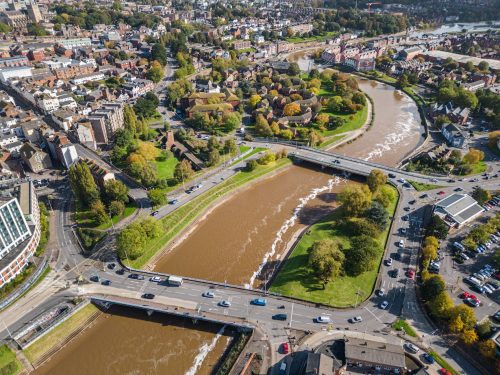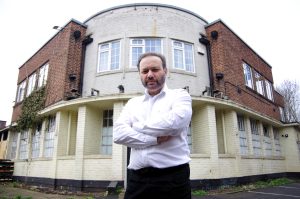Report makes recommendations to support the regeneration of Exeter

A new report makes a series of recommendations to support the regeneration of Exeter.
Exeter City Council invited the Historic Places Panel, facilitated by Historic England, to provide advice on the city’s growth and regeneration as it prepares for an unprecedented expansion of 12,000 new homes over the next 20 years.
The Historic Places Panel is a team of development, planning and conservation industry experts who voluntarily give their time to help councils regenerate and revitalise historic places. The panel and its recommendations are independent of Historic England’s advice on planning matters.
Following a two-day visit to Exeter in September 2024, the panel has made a series of recommendations, including that:
The necessary skills, capacity, and baseline studies are available for the successful delivery of the city council’s Exeter Vision 2040. This includes:
A city-wide place-making strategy that considers the opportunities of its brownfield sites
A study to better understand Exeter’s future transport needs and actively help to reduce car parking in the city centre
An updated green infrastructure study to support the delivery of the city’s carbon neutral targets
Bold adjustments are made to the inner bypass in order to reconnect the historic link between the walled city with the River Exe. This is a priority and is crucial to the successful delivery of the city council’s Vision for Exeter.
Through community engagement, the people of Exeter are at the heart of the city council’s aspirations. The panel advises the creation of an Urban Room, a neutral space for discussion and debate about the city’s future, to listen to and involve its citizens.
The city is better connected to wider audiences. Exeter is a magnet for employment across a wide area. It is also a busy college and university city with a diverse student population, and has a steady flow of visitors from home and abroad. Ambitious plans to improve these connections would enhance Exeter’s offer. One example could be to encourage the expansion of the farmers’ market in partnership with InExeter BID, and local farming and fishing communities.
Ben Derbyshire, chair of the Historic Places Panel, said: “The Historic Places Panel were privileged to be given access by Exeter City Council and a wide range of stakeholders to their plans and aspirations for its future. The city is well known for its long history, outstanding heritage, and we applaud ambitions to build on this for a thriving, sustainable centre, compact and yet well connected to its hinterland.
“We offered some recommendations we felt would help deliver on the promise and we look forward to returning in due course to hear what progress is being made.”
Ross Simmonds, regional director for Historic England in the South West, said: “Exeter has a great opportunity to grow in a way that embraces its people, history, and future. We will draw on the ideas of the Panel in our work with Exeter City Council and partners, to help them realise the vision for a vibrant, sustainable city.”
Cllr Phil Bialyk, leader of Exeter City Council, said: “It was a pleasure to welcome the Historic Places Panel to Exeter, and we are grateful for their valuable insights.
“This report sets out thoughtful recommendations that support our ambition to grow sustainably while protecting and enhancing our city’s rich cultural and historic assets.
“As Exeter continues to evolve, we are committed to ensuring development is delivered sustainably, inclusively, and healthily, while safeguarding our green spaces and historic fabric for future generations.”









